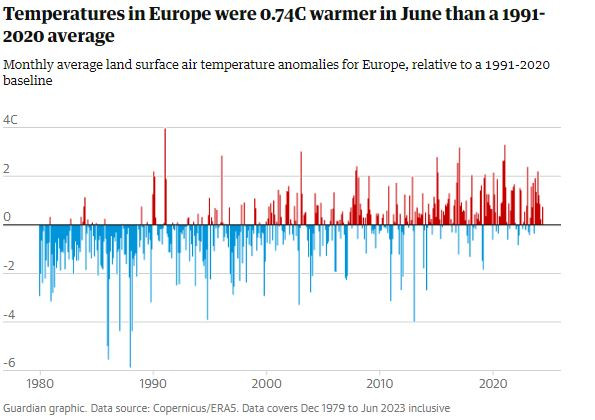Extreme weather has ruined the harvest for the second year – Experts’ estimates
Europe has almost run out of local olive oil reserves after extreme weather events ruined the harvest for the second year.
The world’s biggest producer said it had to import supplies from South America to meet demand.
“Today it is almost impossible to buy olive oil. It’s sold out,” said Walter Zanre, chief executive of UK olive oil arm Filippo Berio.
Olive trees have been cultivated around the Mediterranean for thousands of years, with Spain producing only half of the world’s olive oil supply, but wildfires and high summer temperatures mean the future of this ancient industry looks increasingly uncertain.
Global production is expected to fall to 2.4 million tonnes according to the International Olive Council, less than last year’s harvest and well below global demand of around 3 million tonnes, after drought and heatwaves of more than 40 degrees Celsius hit production in Spain.
Extreme weather events in other major developing regions, including Greece, Italy and Portugal, as well as Turkey and Morocco, have added to the crisis.
Zanre said the company still had inventory to meet delivery requirements, but was forced to import olive oil from Chile to fill the gap ahead of the arrival of this year’s harvest, which begins in October, as wholesale supplies run out across the country. Europe.
The size of this year’s harvest was now “well away” from historical norms, with Spain expected to produce 750,000 tonnes – more than the 660,00 produced in last year’s poor harvest, but well short of the 1.3 million tonnes about. to be calculated in previous years.
“We’re in for another tough year,” Zanre said. “During the beginning of the summer we thought things might get better, but as the summer progressed things got worse.”
Farmers say their incomes have been hit as poor crops combine with rising energy and labor costs.
Rafa Guzmán, an olive grower in Jaén – the cradle of Spain’s olive production – who also serves as the local head of Asaja, Spain’s largest agricultural union, said some farmers were facing disaster as drought conditions continued to affect them.
“The harvest here is down by 70-80%,” he said.
“It’s awful for the people down here. There was always the odd bad harvest, like last year. But two bad harvests in a row? I can’t remember any – and I’m 50 and have been working the trees with my dad since I was a kid. There are people who had olives last year and have none this year. Some people may have to stop growing olives. We do not know”.
Greece is expected to produce only 200,000 tonnes this year, a third less than last year after extreme heat and problems with fly infestations.
Manolis Giannoulis, head of the Greek Olive Oil Inter-Professional Association, said consumers were facing price increases of “over 100%”.
“We are looking at cutting production rates in half this year,” he said. “The supply and demand imbalance has already led to very large price increases, which are enjoyed by producers but greatly hurt consumers.”
Manufacturers hold only about 115,000 metric tons of available olive oil inventory in Spain, according to analysts at commodity data group Mintec, against a monthly usage of about 60,000 tons.
“If this rate of depletion persists, market insiders warn that olive oil stocks could run out before the arrival of fresh harvests, which traditionally start in Spain around October,” said Kyle Holland, edible oil analyst at Mintec.
Fears of shortages have sent wholesale prices sky high. The cost of extra virgin olive oil from Andalusia, in southern Spain, soared to €8.45 a kilo this month, more than double last year’s price and the highest ever recorded for Spain based on price data spanning in more than 20 years.
This caused a 47% increase in retail prices in the UK’s major supermarkets, according to analysts at Assosia.
Italy’s hopes of producing up to 350,000 tonnes are believed to have been hit by extreme weather, including drought – and even recent hailstorms in the main growing region of Puglia, which knocked ripe fruit from the trees.
Italy’s producers have also been hit by the bacterial disease nicknamed ‘Ebola of the olive’ – Xylella fastidiosa – which has killed 6 million trees in recent years.
Tunisia, Turkey and Syria recently stopped exporting oil as they try to protect a local staple from high prices internationally.
Zanre predicts the situation will worsen in the coming years, as the climate emergency is expected to mean hotter, drier and more extreme weather events.
Source :Skai
With a wealth of experience honed over 4+ years in journalism, I bring a seasoned voice to the world of news. Currently, I work as a freelance writer and editor, always seeking new opportunities to tell compelling stories in the field of world news.











